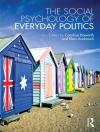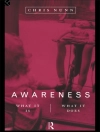Providing theory and practical interventions, this book is the perfect companion to creative arts therapy students and professionals who wish to work with the LGBTQ community and the unique challenges that sexual minorities, transgender and gender non-conforming (TGNC) clients face today.
Considering ally development, unconscious bias and intersectionality, the book provides theory, case studies and practical guidance for working with this client group, as well as experiences emerging from within the LGBTQ and CATs community. The contributors cover a wide range of topics, from exploring sexuality and gender identity through portraiture to facilitating a music therapy group with transgender clients, and foster ally development in senior living communities through a multimodal approach.
With research finding that people from the LGBTQ community are at increased risk of depression and anxiety, Creative Art Therapies and the LGBTQ Community provides indispensable guidance for therapists.
Over de auteur
Briana Mac William is a Professor of Personality Development and Thesis Research and Advisement, as well as the Director of Continuing Education for Pratt Institute’s Creative Arts Therapies Department. She is also the editor of Complicated Grief, Attachment, and Art Therapy.Brian T. Harris is a music psychotherapist and the founding director of the company Creative Arts Psychotherapy. He has worked for over 20 years with a diverse range of clients including LGBTQ clients, trauma, psychiatric, Autism and Alzheimer’s.Dana George Trottier is a registered drama therapist with the North American Drama Therapy Association and a licensed creative arts therapist and clinical supervisor. In addition to this, he is also an arts based researcher utilising art modalities to explore the human experience.Kristin Long is a drama therapist and a psychoanalyst, and has a private practice in New York City working with children, adolescents, families and adults. She has presented nationally and internationally on the importance of attunement within relational dyads.












